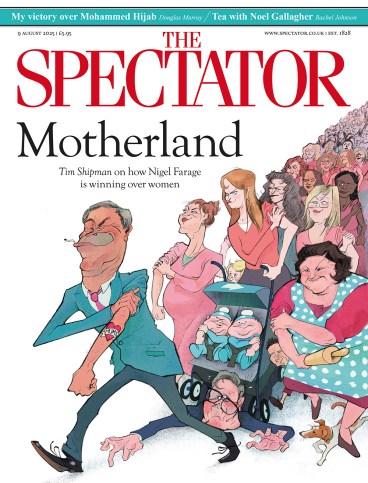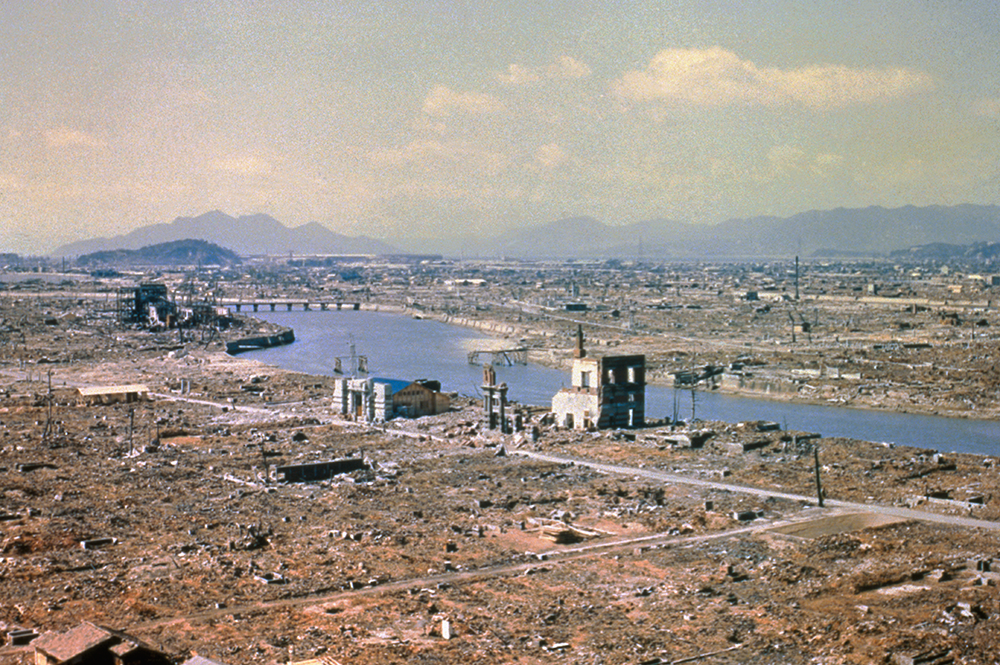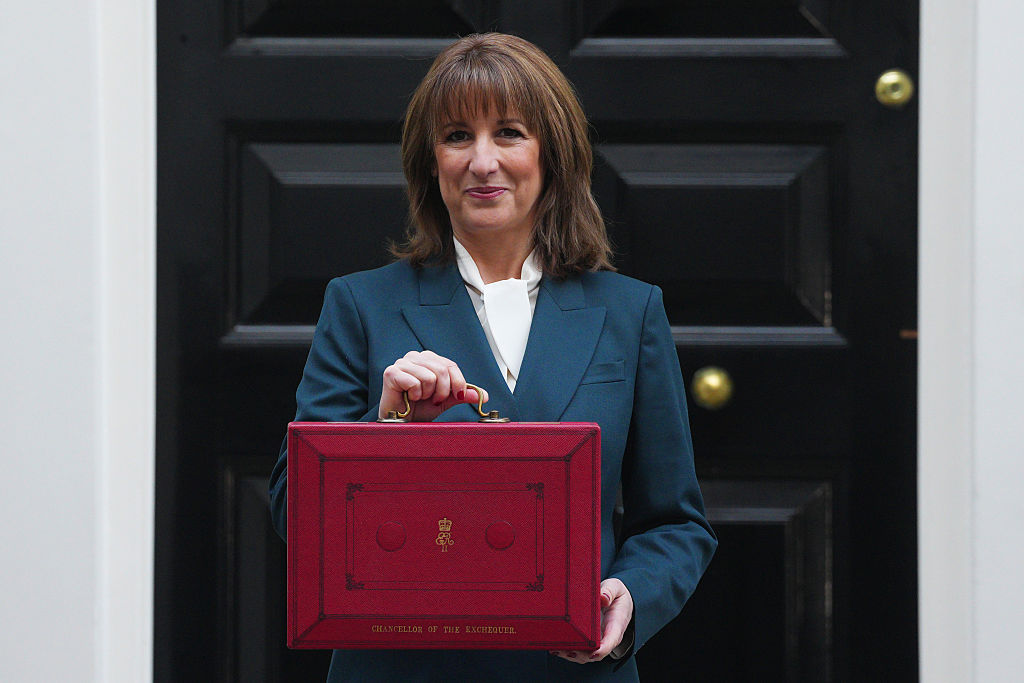
In August 1945, Group Captain Leonard Cheshire was stationed on the Pacific island of Tinian as an official British observer of the dropping of the atomic bombs on Hiroshima and Nagasaki. Two decades later, he wrote for The Spectator about his experience. For him, the attack on the two cities represented ‘the ‘destruction of the impotent by the invincible’. Nevertheless, he argued that the Allies had been ‘undeniably’ right to carry out the bombings since the attack ended ‘the most terrible war’ and prevented an extremely bloody invasion of Japan.
By 1965, the emphasis in public discussion had shifted from ‘the suffering that the world was spared’ to the dead – the 120,000 estimated to have been killed instantly by the blasts, and the many more who died later from burns, radiation sickness and starvation. Although Hiroshima had been a substantial military base, around nine in ten of those killed were civilians.
The debate remains intractable. Supporters suggest the bombings ended the war as swiftly as possible against a Japan prepared to fight to the last man; opponents argue that Emperor Hirohito was already considering surrender and that the bombings were uniquely grotesque acts of revenge.
Reflecting later, Cheshire argued that the bomb should have been dropped offshore first, as a warning. Not doing so left the ‘honour and the justice of our cause… degraded in the eyes of the world’.
The bombings remain the only use of nuclear weapons in an armed conflict. Despite the proliferation of other existential threats, the 80th anniversaries of Hiroshima and Nagasaki this week should not only serve as an opportunity to relitigate historical debates, but also as a reminder of the continuing urgency of the atomic age.
A third of a century on from the Cold War’s end, nuclear weapons remain a live issue. Last week, Donald Trump sent two nuclear submarines towards Russia in response to the former Russian president Dmitry Medvedev grandstanding about his country’s lethal capabilities. In June, the US struck three facilities in Iran to hobble Tehran’s nuclear programme. The same month, Keir Starmer announced the purchase of F-35 planes capable of delivering nuclear weapons, ending a quarter of a century of reliance on submarine-launched ballistic missiles.
It was the threat of mutually assured destruction that kept the Cold War from turning hot
Britain is not alone in looking to adapt and expand its nuclear arsenal. Poland, Germany and Japan have all recently toyed with acquiring or hosting nuclear weapons, as the dependability of the US nuclear shield has come into doubt. Fiona Hill, a foreign affairs scholar and former deputy assistant to the president of the United States, recently predicted that the number of nuclear powers could double in the next 20 years.
For disciples of deterrence theory, this unprecedented rate of proliferation highlights the enduring relevance of nuclear weapons as a tool of peace. It was the threat of mutually assured destruction that kept the Cold War from turning hot. A similar fear helped nuclear-armed India and Pakistan step back from war over the recent terror attacks in Kashmir. The political scientist John Mearsheimer has argued that Russia would have been deterred from invading Ukraine if Ukraine had not surrendered its nuclear weapons in 1994.
The abstractions of international relations tend to obscure the fact that diplomacy and war are practised by irrational, quarrelsome and bigoted human beings. Undoubtedly, nuclear weapons have raised the stakes for any country considering an attack on a fellow nuclear power. But the human appetite for destruction has not been nullified.
Even if the Cold War avoided a direct US-Soviet exchange, tens of thousands still perished in proxy wars from Korea to Angola. It was only thanks to the restraint of shrewd statesmen that crises over Cuba and the Middle East did not escalate past the point of no return. Today’s leaders may not possess the same perspicacity. The shadow cast by Hiroshima and Nagasaki has prevented the use of nuclear weapons for eight decades. There is no guarantee that it will continue to do so.
The US pursuit of the nuclear bomb was expedited by the fear of what would happen if the Nazis acquired such a weapon first. The desire to stall Iran’s nuclear programme today stems from a conviction that the ayatollahs are fanatical enough to carry out their threats against Israel. As Cheshire put it, the ‘evil is not so much in the bomb itself’ but ‘in the hearts of men’.
The further proliferation of nuclear weapons would mean an increase in the potential for devastation far beyond what the world witnessed at Hiroshima and Nagasaki. Disarmament may be an unlikely prospect amid a new age of great power competition. But today’s statesmen should heed the words inscribed on the Hiroshima Peace Memorial, erected in what was once the city’s busiest commercial and residential district: ‘Let all the souls here rest in peace, for we shall not repeat the error.’







Comments